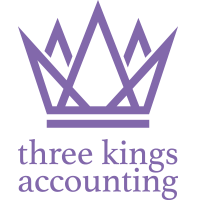Due to the introduction of new accounting standards, commonly referred to as ‘New UK GAAP’, the form and content of company accounts has changed.
The changes for non-small companies took effect for accounting periods beginning on or after 1st January 2015. In many instances companies will now show a different bottom-line profit or loss and a different total for net assets on the balance sheet. These changes could also lead to a higher or lower tax bill.
The extent of the changes will vary on a company by company basis. It will depend upon the nature of the company’s activities and the types of assets which it has.
This factsheet sets out the key changes and their impact and we would be happy to assist you in providing specific advice for your company.
Large and medium sized companies
For these companies, the changes result from the introduction of FRS 102 (‘Financial Reporting Standard 102 – The Financial Reporting Standard applicable in the UK and Republic of Ireland’). FRS 102 replaces all existing accounting standards.
The new standard must be applied for periods commencing on or after 1 January 2015, though early adoption is possible.
Small companies
Previously small companies will have followed the requirements as per the Financial Reporting Standard for Smaller Entities (FRSSE).
The FRSSE however had a short shelf life and ‘small entities’ will be moving to the recognition and measurement requirements of FRS 102 for periods commencing on or after 1 January 2016. Although these ‘small entities’ will have to account for balances and transactions in the same way as larger entities there will be reduced disclosure requirements. This is commonly referred to as section 1A.
Certain small companies may qualify as micro-entities and can choose to apply a new accounting standard: FRS 105 – The Financial Reporting Standard applicable to the Micro-entities regime which includes simplified accounting and greatly reduced disclosure requirements. The qualification as a micro entity, broadly requires a company to satisfy two of the three criteria:
Current |
|
| Turnover | £632,000 |
| Total assets | £316,000 |
| Employees | 10 |
At present to qualify as small, broadly, a company needs to satisfy two of the three criteria on an ongoing basis as set out in the table below. There are other criteria to consider, and we would be pleased to discuss these in more detail with you.
Current |
|
| Turnover | £10.2m |
| Total assets | £5.1m |
| Employees | 50 |
The size criteria above is mandatory for periods commencing on or after 1 January 2016 although earlier adoption is permissible in some situations.
The main areas in which FRS 102 will have an impact on company accounts
FRS 102, including appendices, is less than 350 pages – significantly less than the existing accounting standards contained within SSAPs and FRSs.
The main differences which may arise upon transition to FRS 102 are listed below. We can of course advise you on the specific impacts for your business in far more detail and this list is not exhaustive.
- Taxation – one of the most important impacts will be on the tax payable on profits. If the accounting profits increase or reduce as a result of a new accounting standard, so could the tax payable. Changes to the circumstances where deferred taxation is provided will often mean more deferred taxation is included in the accounts.
- Investment properties – there are some big changes here including how to account for changes in valuation and potentially the actual value included in the accounts.
- Goodwill (and other intangibles) – this is a complicated area with elements of judgment. If this affects you, we recommend contacting us for further information.
- Financial instruments – this is the technical name for a number of items that appear in the accounts such as cash, debtors, creditors, loans payable and receivable and derivatives (the collective term for forward exchange contracts, futures and interest rate swaps). The accounting for some of these items is broadly the same however some accounting has changed substantially and will impact the values included in your accounts. There could therefore be subsequent tax impacts.
- Related party disclosures – (non-small companies) the good news here is that related party transactions can be disclosed by category without the need for the names of related parties. The bad news is that there is additional disclosure required of ‘compensation of key management personnel’. For small companies applying section 1A, only material related party transactions which are not concluded under normal market conditions will need to be considered for disclosure.
- Numerous other areas including, but not limited to: accruing for outstanding holiday pay; spreading of lease incentives; changes to what are currently called tangible fixed assets (such as land and buildings) but which become property, plant and equipment; changes in group accounts and changes to cash flow statements.
How we can help
Implementing these new accounting standards (commonly referred to as ‘new UK GAAP’) may well be tricky and decisions will need to be made in relation to choosing accounting policies and complications on transition.
We will be very pleased to discuss the impact of FRS 102 on your company and explain what will be required and when it will need to be done. If you would like to discuss these in more detail, please contact us.


